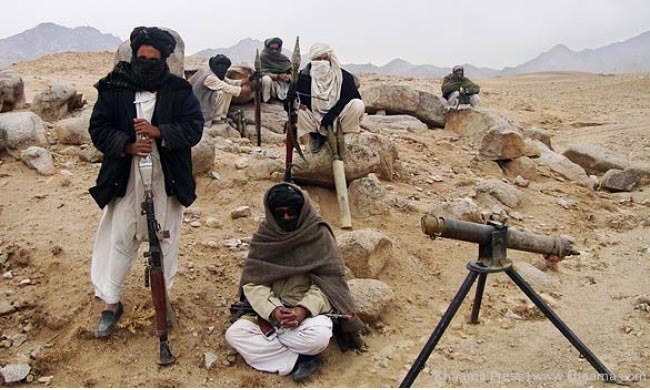Concerned over the security situation across the country in spring next year, the Lower House of the parliament summoned top security officials on Saturday, demanding explanations on how the security agencies are prepared to take pre-emptive actions against the insurgent groups before the start of the spring fighting season. MPs are concerned that the government is lacking a comprehensive anti-insurgency plan while the opportunity is being lost. The Ministers of Defense and Interior Affairs and the acting head of the National Directorate of Security tried to assure the Wolesi Jirga that the government is prepared to defend the country against Taliban. However, the parliament did not seem to be convinced of the explanations delivered by the three top security officials over preparations and commitment of the security agencies curb the insurgency.
There are widespread concerns over how the anti-insurgency campaign of the Afghan government would go on and how it would manage to deal with a more hard-headed insurgency. As explained by the security officials, the insurgent groups would continue to mount deadly offensives against the Afghan government next year aimed at seizing more grounds from government forces. The fact that the war would continue unabatedly is daunting the Afghan public who desperately hope to see the end of the bloodshed. There are also suggestions that the insurgent groups including the Taliban and the Islamic State group may try to escalate the war far beyond the levels of previous years. This means that the Afghan security forces will be engaged in a much more difficult campaign against the insurgent groups and there would be much more enormous challenges ahead.
Last year, some provinces turned into hotbed of insurgency. Some northern provinces particularly Kunduz as well as some parts of the eastern and southern parts of the country namely Helmand, Nangarhar and Ghazni provinces were scenes of intense fighting between government forces and the insurgent groups. The insurgent groups managed to achieve considerable gains in terms of publicity and taking grounds, though mostly temporary, from the government. The militants are now posed to strengthen their last year achievements. According to some MPs, the militants aim to expand the war in some provinces of the northern parts of the country, as the militants are expanding supply routes for the group’s next season of fighting. The officials expect that the insurgents would mainly focus on targeting major cities as well as highways, a strategy that seem to be more ambitious and would pursue more brazen tactics to achieve its objectives.
The security agencies suffered major shortcomings and deficiencies in the campaign against the insurgent groups last year. The army and police forces suffered high casualties in the fight, and is continuing to suffer a high level of tolls in the fight against the Taliban. The high rate of desertion and casualties against the Taliban would remain one of the biggest vulnerabilities of the Afghan security forces. The Afghan army lacks an operational air force to provide support to the army units engaged in the fight against the insurgents. The government needs to strengthen the armed forces in terms of weaponry, equipment and fighting capabilities to lead the campaign in a sustained way. The national unity government has been trying to reach out to NATO and the United States for provision of equipment and weaponry to the Afghan air force. Some remarkable steps have been taken in equipping the air force with warplanes and weapons.
The most obvious vulnerability of the government forces was lack of coordination among the army units fighting on the frontlines of the battlefields in far remote areas of the country. Due to lack of proper coordination, the army and police forces suffered high casualties and lost grounds to the insurgents. The acting minister of defense pointed to the issue saying that it was a mistake to deploy forces in all fronts, leading the Afghan forces to fight from a weaker position while the insurgents used mass assault tactics in most of their assaults. He said that the government would focus on repelling large-scale attacks organized by the insurgents. Given that the Taliban gained the highest advantages from their war strategy last year, the group would focus again on launching large-scale attacks on major towns and cities as well government offices.
The winter season is an opportunity for the Afghan government to escalate the offensives against the insurgent groups. But there are widespread criticisms towards the government agencies as they are losing the opportunity of the winter lull in the fighting with the Taliban. The Taliban and other groups are reportedly preparing for the next year fighting season against the government with establishing supply routes among various provinces of the north and focusing on gaining ground in some volatile districts of provinces in the south. As last year, it is highly anticipated that Kunduz in the north, Helmand in the south, Nangarhar and some other provinces in the east of the country would remain as hotspots of insurgency.
The government has the opportunity in the winter season to disrupt preparations made by the insurgent groups in these provinces for the next year fighting season.
Next year will be a crucial year for the Afghan security forces to reverse the gains made this year by the Taliban and other insurgent groups. The next years will be decisive in defining the future of the country. As the government will struggle to resolve the conflict through political means, the security agencies need to contain the militant groups and foil their efforts for overthrowing the government. The Taliban succeeded in establishing a prominence for itself for staying as a long-term insurgency in the country and a potential threat for the sustainability of the armed forces and the political system. The armed forces need to devise a comprehensive transitional defense strategy and lead a more aggressive war against the insurgent groups. The army and police forces need to remain prepared for leading a sustained anti-insurgency campaign.

